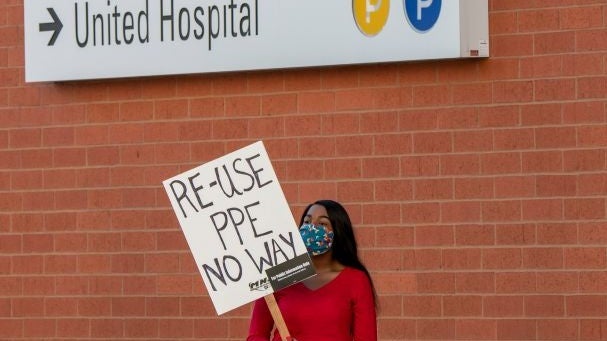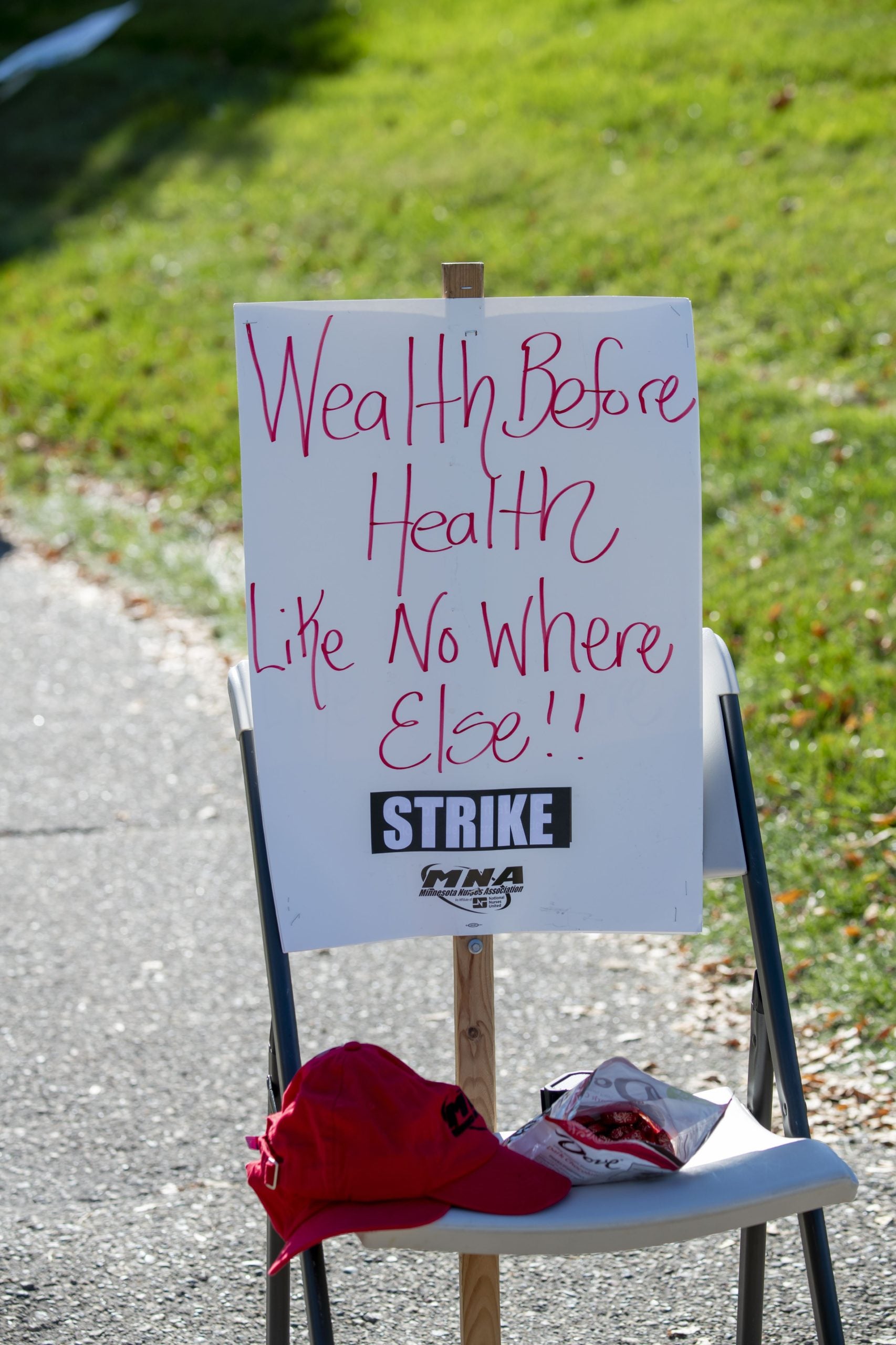
Nurses in Minnesota announced what may be the largest nurses’ strikes in U.S. history on Thursday.
According to the state’s nurses’ union, the Minnesota Nurses Association (MNA), hospital networks have failed to meet the nurses’ concerns about being overworked and understaffed. There are also reports that some hospitals are failing to live up to their diversity and inclusion claims, sources told ESSENCE.
In some hospitals, management would not agree to recognize Juneteenth as a paid holiday, and one hospital blatantly disregarded the federal holiday when nurses of color were in the negotiating room, according to representatives of the MNA.
The union attempted to negotiate with hospital executives for over five months this year. But the parties have not come to an agreement, leading 15,000 nurses across 16 hospitals to plan a three-day strike beginning September 12, 2022.
“I was watching my co-workers get assaulted every day by one single patient with not a care to our mental health,” nurse Tracie Ducksworth tells ESSENCE. Ducksworth is a pediatric mental health psychiatric nurse for the M Health Fairview hospital system, and she cares for children with mental health illnesses and drug use, among other patients.
Ducksworth, an African American nurse, was also in the room when hospital management dismissed demands of nurses of color and others to recognize Juneteenth. “One of our proposals was to add Juneteenth as a paid holiday. It just became a federal holiday,” she says. “It means a lot to me. I don’t expect it to mean a lot for the majority. But they looked and said ‘why is this so important to you?’”
An April 27 newsletter updating union members on the Fairview negotiations was shared with ESSENCE, and it corroborates the exchange. “We were given a 30-minute presentation about Fairview’s Diversity, Equity, and Inclusion program, but were not allowed to ask questions directly to the DEI team who presented,” the newsletter states. “Later in the day, management stated that they were not interested in Juneteenth nor were they interested in an additional floating holiday so nurses may observe non-Christian holidays.”
You have your token Black folks on your website, but you don’t want to back it up. Put your money where your mouth is, pay us for the holiday.”
“This hospital would cease to exist without the inventions, and movement, and education of the African American community, and yet you want to ask why Juneteenth is so important. Did we forget the Tuskegee experiment? Did we forget Henrietta Lacks?,” Ducksworth asks rhetorically. “Your medical devices, your open-heart surgery, came from a person of color. But you want to ask why it’s important. You have your token Black folks on your website, but you don’t want to back it up. Put your money where your mouth is, pay us for the holiday.”
A Fairview hospital representative did not respond to a request for comment.

Nurses across the union have requested key provisions in their contracts: paid family leave, ensuring that personal protective equipment is fully stocked, and adequate staffing so that “nurses do not become overworked and burn[t] out,” according to written correspondence to ESSENCE from Sam Fetting, a representative of the nurses’ union.
Another primary issue, Fetting points out, is fair wages, as “hospital executives are offering an average annual increase of only about 4%, well below the current rate of inflation and rising cost of living,” while nurses have tried to negotiate for a ten percent annual increase.
The demand for fair wages is part of a larger issue the nurses have raised around executive compensation. “Our CEO has probably almost doubled his salary” since the last negotiation, Ducksworth notes, referring to James Hereford at Fairview Southdale Hospital. He is the highest paid of all the hospital systems’ CEOs and makes 40 times the salary of the average registered nurse. This represents the largest pay gap of all the negotiating hospitals, according to MNA calculations.
“Every proposal that we’ve [offered for higher wages] that they have denied has been ‘it’s too much,’” Ducksworth says. “Their exact words are ‘that’s too rich of an ask.’”
Ducksworth had spoken to ESSENCE after she was in the negotiating room. “They started negotiations today with ‘just want to remind you it’s been in the newspaper that we have a loss of XYZ million,’” she says. “Then they went on to tell us that they can’t [increase our wages] because they don’t have money.”
CEO James Hereford is making over $3.5 million a year, she points out, and hospital executives are getting bonuses. “What are you getting extras for if you’re in the news saying you’re at a loss? What did you do well to get that bonus?”
“While hospital CEOs with multi-million-dollar salaries have refused to negotiate with nurses over solutions to the crises of short-staffing, retention and patient care, the problems are getting worse: recent studies show that more nurses are planning to leave the bedside while adverse events for patients are increasing,” the union’s press statement reads.
Ducksworth noted the importance of service-sector jobs for the country, and warned of what happens when its workers aren’t valued. “We need to remind the country, the nation, everybody of where our groundwork is. I look at it like a house. The roof is nice. The yard is [nice]. But if your foundation crumbles, the house is coming down,” she said. “Anybody who owns a house knows it’s expensive as heck to fix or replace the foundation. And right now, the nation’s foundation is crumbling.”
“When you’re in a hospital,” Ducksworth adds “you have your surgery when you’re done. Who’s there 24 hours a day? We are keeping the hospital going. We are the foundation of the hospital. If you don’t have any nurses, the hospital is going to fall apart.”






